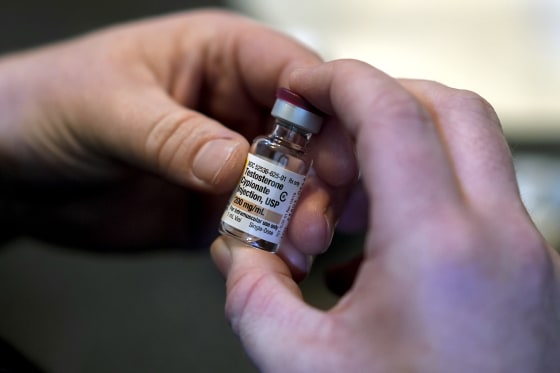
According to a research released Monday in the country’s leading pediatric medical journal, transition-related pharmaceuticals are rarely administered to young people, raising concerns among policymakers worldwide about whether or not they should be made available to minors.
The findings published in JAMA Pediatrics show that less than 0.1% of transgender or gender-diverse teenagers with private insurance in the US are administered gender-affirming medications or puberty blockers.
In addition, no transgender kids under the age of 12 were provided gender-affirming medications, according to the research paper, which examined the private insurance claims for over 5.1 million young patients, aged 8 to 17, between 2018 and 2022. According to the Census Bureau, 65% of the nation was covered by private insurers as of 2023.
The lead author of the paper, Landon Hughes, a fellow at Harvard University’s T.H. Chan School of Public Health, stated that it is crucial for the general public to realize that not everyone has access to gender-affirming care when they see the doctor. It’s not as common as some would have us think, particularly among young people.
Hughes went on to say that there isn’t a huge influx of people seeking care. Access to this care is undoubtedly limited, and it has undoubtedly consumed much of the public conversation in the current political and legal environment.
According to the study, trans children who were given female sex at birth were more likely than those who were assigned male sex to utilize hormones and puberty blockers. The authors pointed out that this might be the case because those who are assigned female at birth experience puberty earlier.
The purpose of puberty blockers is to either postpone or stop puberty in its tracks. The purpose of the drug is to allow kids with gender dysphoria more time to determine if they want to change their gender permanently. When the medicine is stopped, puberty returns. Usually, doctors prescribe gender-affirming hormones to replace hormones that a person’s body produces on its own but that don’t correspond with their gender identity.
Gender affirming care for minors is supported by the majority of major U.S. medical organizations. The care has been described as medically required by the American Medical Association, the organization that produces JAMA.
Unaffiliated with the study, Dr. Alex S. Keuroghlian, director of education and training at the LGBTQ health care group Fenway Health, stated that he is not shocked by the results because there is a lack of access to care linked to transition.
“I suspect that not all transgender or gender-diverse youth who would have benefited from this type of care necessarily received it because there is such a bias against providing it,” he said. Even in wealthy communities with private insurance, I observe that in action in the populations we serve. Many obstacles may stand in the way of that child receiving treatment that is gender affirming, both at the family and practice levels.
In a dispute concerning state prohibitions on puberty-suppressing drugs and other transition-related care for kids, the Supreme Court heard oral arguments in December. The Tennessee state legislation that forbids gender-affirming care for kids is being considered by the court for constitutionality, and the justices seem inclined to support the law. In the United States, Tennessee is one of over two dozen states that have restrictions on this type of care.
The UK permanently outlawed the prescription of new puberty blockers to treat gender dysphoria in youngsters last month. Several months after an independent assessment commissioned by England’s National Health Service found that the medical evidence supporting transition-related treatment for children was shockingly inadequate, the indefinite prohibition was implemented.
Note: Every piece of content is rigorously reviewed by our team of experienced writers and editors to ensure its accuracy. Our writers use credible sources and adhere to strict fact-checking protocols to verify all claims and data before publication. If an error is identified, we promptly correct it and strive for transparency in all updates, feel free to reach out to us via email. We appreciate your trust and support!
